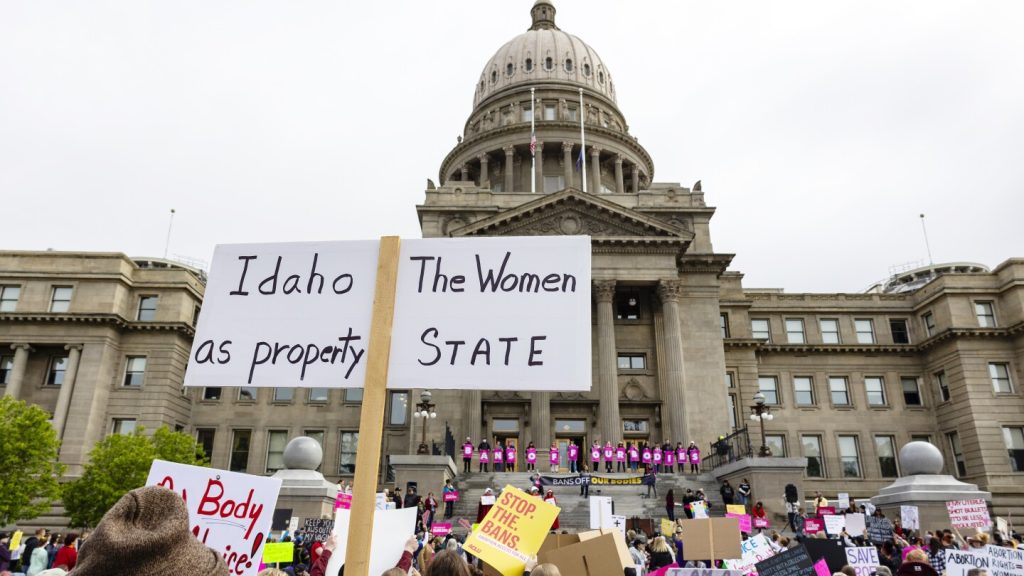Idahoans United for Women and Families, a new organization in Idaho, is planning to ask voters to restore abortion access and other reproductive health care rights in the state. This decision comes after lawmakers ended a second legislative session without making any modifications to the strict abortion bans in place, which have led to a shortage of health care providers in the state. The organization believes that the people of Idaho understand the problem and are seeking a solution from them since lawmakers have not taken action.
Idaho currently has several anti-abortion laws in place, including one that criminalizes performing abortions even in medical emergencies, unless it is done to save the life of the pregnant patient. The federal government has sued Idaho over this ban, arguing that it violates a federal law requiring hospitals to provide stabilizing care, including abortion, if a patient’s life or health is at serious risk. The U.S. Supreme Court is set to hear arguments in this case on Wednesday, further highlighting the urgency of the issue.
Idahoans United for Women and Families is fundraising and planning to propose one or more ballot initiatives this summer in the hopes of getting them on the 2026 ballot. The organization aims to mobilize support and bring attention to the issue of abortion rights in Idaho. Across the country, there has been a surge in efforts to put abortion rights questions to voters following the overturning of Roe v. Wade by the U.S. Supreme Court. Several states have already seen success with ballot measures in support of abortion rights, while others are actively working on signature drives for future initiatives.
The impact of the abortion bans in Idaho has been significant, particularly in the field of maternal care. Pregnant women in certain regions of the state have been left with limited options for obstetric care, often having to travel long distances or even leave the state entirely. The exodus of health care providers following the abortion bans has led to closures of labor and delivery units at hospitals and a decrease in access to prenatal health care. This lack of access can result in dangerous pregnancy conditions being diagnosed later than usual, leading to the need for intensive medical treatment for newborns or expensive interventions for mothers that could have been avoided with better obstetric care.
A coalition of groups, including the U.S. Women’s Chamber of Commerce, Levi Strauss & Co., Yelp, Lyft, and Match Group Inc., have filed a friend-of-the-court brief in the U.S. Supreme Court case, arguing that the abortion bans in Idaho make it harder to recruit and retain workers. These groups believe that the bans lead to increased time off work for individuals who have to travel elsewhere for reproductive health care. The ripple effects of the abortion bans extend beyond just health care, impacting the economy and workforce in the state. The urgency of addressing these issues and restoring reproductive health care rights in Idaho is becoming increasingly clear as the situation continues to worsen.


